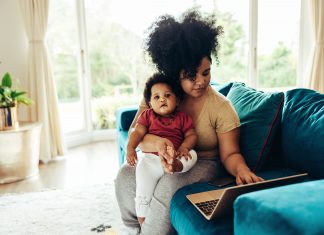
When a child hits a “money-saving milestone,” it can mean a complete lifestyle change for a family. Certain milestones, like aging out of daycare into public school, transitioning from formula to solids, and successfully potty training can have a positive and substantial impact on a family’s monthly budget.
For income-constrained families who are struggling to afford basic necessities, purchasing diapers for a child who isn’t toilet trained can be a major hardship. It may surprise you to know that diapers — one of the most expensive baby care consumables — cannot be purchased with most government aid by families who qualify for aid. Even programs like WIC (Women, Infant, and Children), a federal assistance program to support low-income pregnant women and women with children under 5, does not allow recipients to purchase diapers with the financial aid they receive.
The Washington Post reports that before the pandemic, one out of three families could not afford diapers, but now things are even worse. Some caregivers have resorted to reusing diapers and keeping their babies in soiled diapers longer than advisable in order to make their diaper supply last longer.
For this reason, diaper banks have been created all across the country (many by moms on a mission to support other moms) to provide free diapers for families in need.
When my baby outgrew newborn diapers, I couldn’t figure out what to do with the open packs of diapers I had left over. I asked around and soon discovered that most diaper banks accept loose diapers and open packs of diapers. Those diaper banks will ensure that every usable diaper is passed along to a family in need of diapers.
If you are in the midst of spring cleaning and come across loose diapers or open packs of diapers, give them a second chance by passing them along to a diaper bank near you. For a national list of diaper banks, visit the National Diaper Bank Network’s website. I’ve also included a list of a few local diaper banks below:
- Neighbors in Need
- A Place to Turn
- Lowell Alliance
- Beantown Baby Diaper Bank
- Cradles to Crayons — Boston
- It Takes A Village
- Marie’s Mission
- Lannie’s Neighborhood Diaper Bank
*You may be wondering why families who are struggling to afford single-use diapers don’t use reusable diapers instead. Many caregivers don’t have access to laundry units in their homes, and laundromats will often refuse to allow reusable diapers to be washed in their facilities. Additionally, many childcare providers will not allow reusable diapers, and many income-constrained families rely on childcare services.













